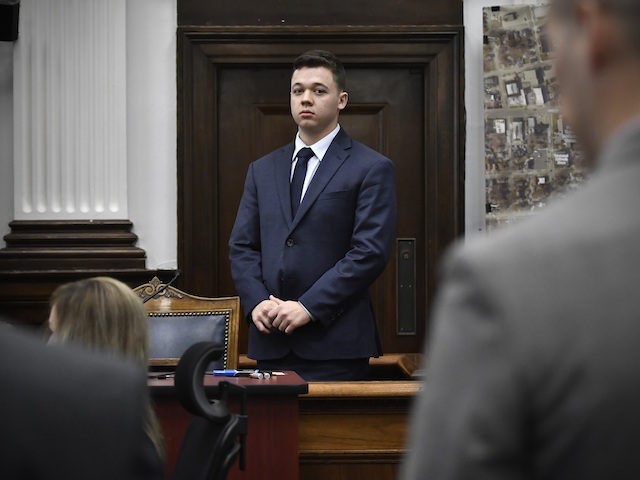If 2020 was the year of the riot, 2021 was the year of the jury trial — the year when Americans quietly and anonymously asserted the rule of law in the most direct fashion possible: by considering the facts, and pronouncing guilt or innocence.
Juries had been under rhetorical and political since attack since the launch of the Black Lives Matter movement in 2013 and 2014, when activists were furious that a jury in Florida declined to convict George Zimmerman for the murder of Trayvon Martin, and a grand jury in Missouri refused to indict police officer Darren Wilson in the death of Michael Brown — who was not, it turned out, shot in the back as he raised his hands in surrender, but rather as he attacked Wilson for the second time.
The activists demanded that due process rights be set aside when the victim was black, or when the defendant was a police officer. Some, like Rep. Maxine Waters (D-CA), pledged violence if they were not granted the verdicts they demanded.
In that case, it is possible that some jurors in the trial of Derek Chauvin, who was convicted of murdering George Floyd, were influenced by Waters’s threat. The Hennepin County, Minnesota, judge himself noted that Waters’s rhetoric was “abhorrent” and created a possible grounds for appeal. Still, Chauvin himself pleaded guilty earlier this month to federal charges of violating Floyd’s civil rights, suggesting that even he agreed the Minnesota jury had reached the right decision.
Another Hennepin County jury reached a guilty verdict this week, in the trial of another former police officer, Kim Potter, who accidentally shot and killed 20-year-old Daunte Wright as he resisted arrest: she had only meant to fire her Taser. The prosecution agreed with the defense that Potter had no intention to kill. But the question was whether she was criminally negligent. The jury agreed that she was, and even observers who had predicted the opposite outcome accepted the verdict.
Earlier this year, a jury in Kenosha, Wisconsin, acquitted teenager Kyle Rittenhouse, who was facing multiple charges after killing two rioters and wounding another during last summer’s unrest. Most Democrats were furious: Rep. Hakeem Jeffries (D-NY), who styles himself as an advocate of criminal justice reform, had tweeted angrily before the verdict: “Lock up Kyle Rittenhouse and throw away the key.” But anyone who had followed events closely last summer knew that Rittenhouse had acted in self-defense, even he showed what the judge called “exceptionally poor judgment” in showing up at the riot at all.
President Joe Biden’s initial reaction to the Rittenhouse verdict was to call on Americans to respect the decision of the jury. That was the right thing to say. But later, after his staff had a chance to grab hold of him, Biden issued a second statement in which he echoed the sentiments of his party, saying that he was also “angry and concerned” about what the jury had done.
The left welcomed a different jury decision, a few days later in Georgia, where three white men were convicted of murdering a black jogger, 25-year-old Ahmaud Arbery. The jury was almost entirely white, which led left-wing pundits to denounce the racism of the jury system. But even Al Sharpton praised the jury when the verdict was issued. Unlike Democrats, who had rejected the Rittenhouse verdict, many conservatives agreed with the verdicts in the Arbery case, which followed the facts.
In sum: the year saw several jury trials in which the outcome, while sometimes controversial and surprising, were generally accepted by all but the left-wing activists who had targeted the jury system for years. And in the end, even the Sharptons of the world found reason to be satisfied, in some cases, that justice had been done.
Through all the political turmoil of the past few years, this peculiar feature of the American system of government has proved its enduring worth. Long may it continue.
Joel B. Pollak is Senior Editor-at-Large at Breitbart News and the host of Breitbart News Sunday on Sirius XM Patriot on Sunday evenings from 7 p.m. to 10 p.m. ET (4 p.m. to 7 p.m. PT). He is the author of the recent e-book, Neither Free nor Fair: The 2020 U.S. Presidential Election. His recent book, RED NOVEMBER, tells the story of the 2020 Democratic presidential primary from a conservative perspective. He is a winner of the 2018 Robert Novak Journalism Alumni Fellowship. Follow him on Twitter at @joelpollak.

COMMENTS
Please let us know if you're having issues with commenting.